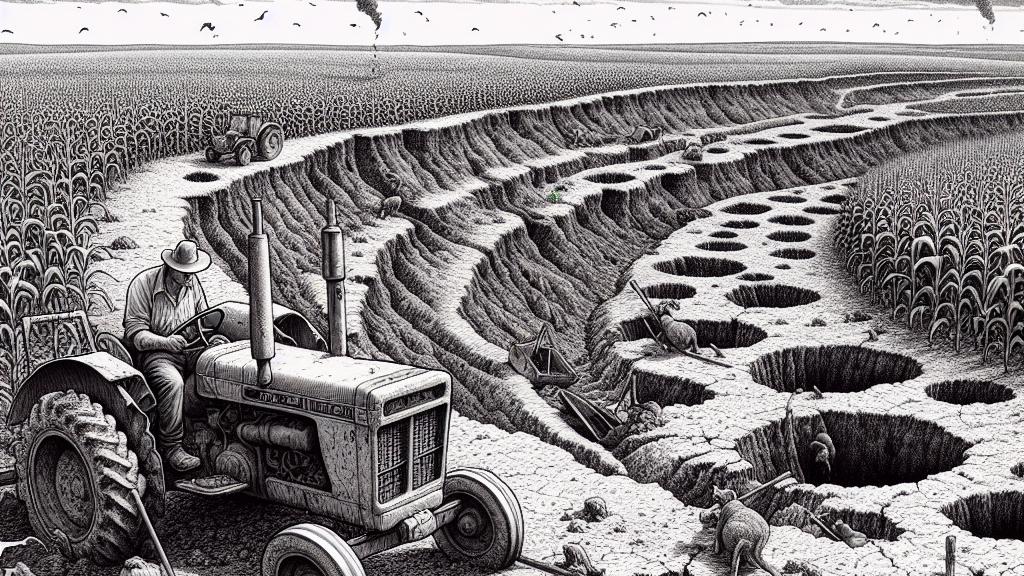Rising Sinkholes in Turkey's Agricultural Heartland
Overview
- In Konya, Turkey, farmers face an escalating threat from numerous sinkholes jeopardizing their livelihoods and the region's agricultural stability.
- This crisis stems from severe drought conditions and unsustainable groundwater extraction practices.
- Farmers' resilience is being tested as they navigate daily uncertainties while striving to sustain their families.

The Sinkhole Crisis in Konya, Turkey
In the scenic province of Konya, Turkey, an alarming crisis is emerging—a surge in sinkholes that poses a significant risk to farmers and their crops. In the district of Karapinar, where fertile fields used to flourish, these sudden voids now litter the landscape. For instance, Fatih Sik, a resolute corn farmer, finds himself battling not just the elements but also the very ground he plows. These sinkholes can appear seemingly overnight, with devastating consequences. Imagine the anxiety of navigating a tractor in fields rife with potential pitfalls; it not only endangers lives—it threatens the very food security of a region known as Turkey's breadbasket. With over 600 sinkholes documented, the fear of falling into one becomes a stark backdrop to every farming task.
Causes Behind the Emergence of Sinkholes
The root causes of this alarming phenomenon can be traced largely to climate change and the relentless overuse of groundwater. Over the past decade, Konya has grappled with two types of drought: meteorological and hydrological, both of which have severely depleted water resources. For farmers, this means adapting to a new reality—not only have they increased irrigation from a couple of times a year to as much as six times, but they also face rising costs and shrinking returns. As Professor Fetullah Arik poignantly notes, the balance between water usage and sustainable farming has been shattered, leading to the formation of vast subterranean cavities that can no longer bear the burden of soil above. Such environmental disruption poses a serious risk, making the ground unstable and highlighting the critical need for responsible water management and agricultural practices.
The Future of Farming in a Sinkhole-Prone Landscape
Standing at a decisive crossroads, the future of farming in Konya looks uncertain. The increasing incidence of sinkholes serves as a stark reminder of the precarious nature of relying on finite resources. Farmers and experts alike are advocating for innovative solutions—such as implementing advanced irrigation systems that utilize water more efficiently while reducing dependency on dwindling groundwater supplies. Moreover, the narratives of determined farmers like Fatih Sik shed light on the resilience ingrained within this community; they represent hope amid adversity. If proactive measures are enacted swiftly, there's potential for revitalizing agriculture in Konya, ensuring the region not only survives but thrives. Without such action, however, the agricultural backbone of Turkey is at serious risk, and the implications could resonate far beyond its borders, threatening food security for years to come.

Loading...